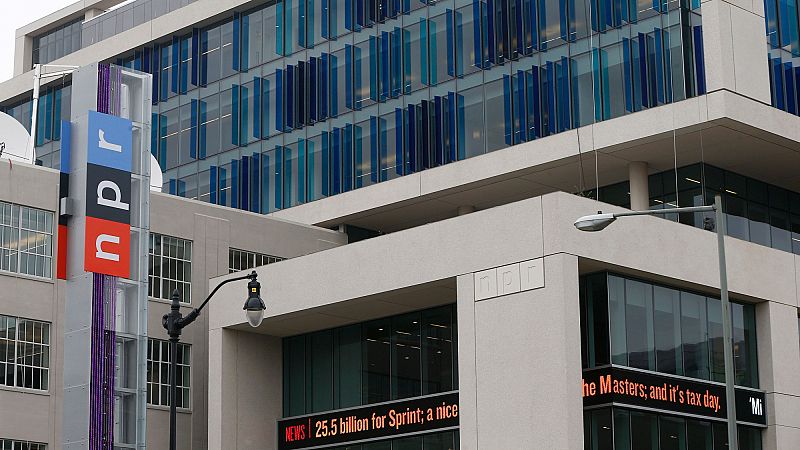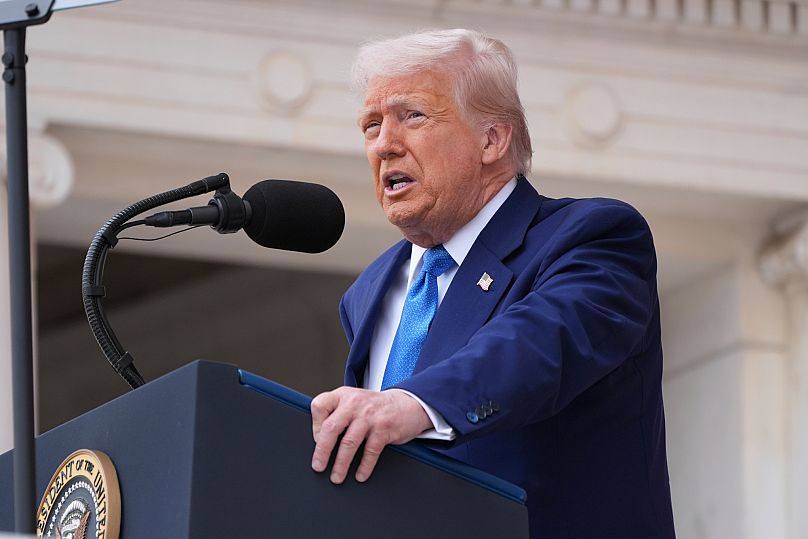
National Public Radio (NPR) and three of its local stations have sued US President Donald Trump, arguing that his executive order cutting funding to the 246-station network violates their free speech and relies on an authority that he does not have.
Earlier this month, Trump instructed the Corporation for Public Broadcasting and other federal agencies to cease funding for NPR and the Public Broadcasting Service (PBS), either directly or indirectly.
The president and his supporters argue their news reporting promotes liberal bias and shouldn't be supported by taxpayers.
Retaliation is Trump's plain purpose, the lawsuit, filed in federal court in Washington, argues.
"By basing its directives on the substance of NPR's programming, the executive order seeks to force NPR to adapt its journalistic standards and editorial choices to the preferences of the government if it is to continue to receive federal funding," Katherine Maher, NPR's CEO, said.

Lawsuit says Trump is targeting a non-profit corporation
The lawsuit alleges that Trump is acting to contravene the Corporation for Public Broadcasting, a private non-profit corporation set up to distribute federal funding to NPR and PBS, which is intended to insulate the system from political interference.
Congress has appropriated $535 million (€478 million) yearly to CPB for 2025, 2026 and 2027.
In response to the lawsuit, White House deputy press secretary Harrison Fields said that CPB "is creating media to support a particular political party on the taxpayers' dime," so Trump was exercising his authority under the law.
"The president was elected with a mandate to ensure efficient use of taxpayer dollars, and he will continue to use his lawful authority to achieve that objective," Fields said.
Trump hasn't hidden his feelings about NPR, calling it a "liberal disinformation machine" in an April social media post.
The court fight seemed preordained, given that the heads of NPR and PBS both reacted to Trump’s move earlier this month with statements that they believed it was illegal.
The absence of PBS from Tuesday's filing indicates the two systems will challenge this separately. PBS has not yet gone to court, but is expected to.
"PBS is considering every option, including taking legal action, to allow our organisation to continue to provide essential programming and services to member stations and all Americans," PBS spokesman Jeremy Gaines said.

Legal disputes with news organisations
The president's attempts to dismantle government-run news sources like Voice of America and Radio Free Europe/Radio Liberty have also sparked court fights.
In May, the European Union agreed to provide emergency funds to help keep Radio Free Europe afloat after the Trump administration stopped grants to the media outlet, accusing it of promoting a news agenda with a liberal bias.
EU foreign policy chief Kaja Kallas said the bloc's foreign ministers had agreed to a €5.5 million contract to "support the vital work of Radio Free Europe."
Radio Free Europe/Radio Liberty’s programmes are aired in 27 languages in 23 countries across Eastern Europe, Central Asia and the Middle East.
The administration has also battled with the press on several fronts. The Federal Communications Commission is investigating ABC, CBS and NBC News.
The Associated Press also went to court after the administration restricted access to certain events in response to the press agency's decision not to rename the Gulf of Mexico as Trump decreed.







